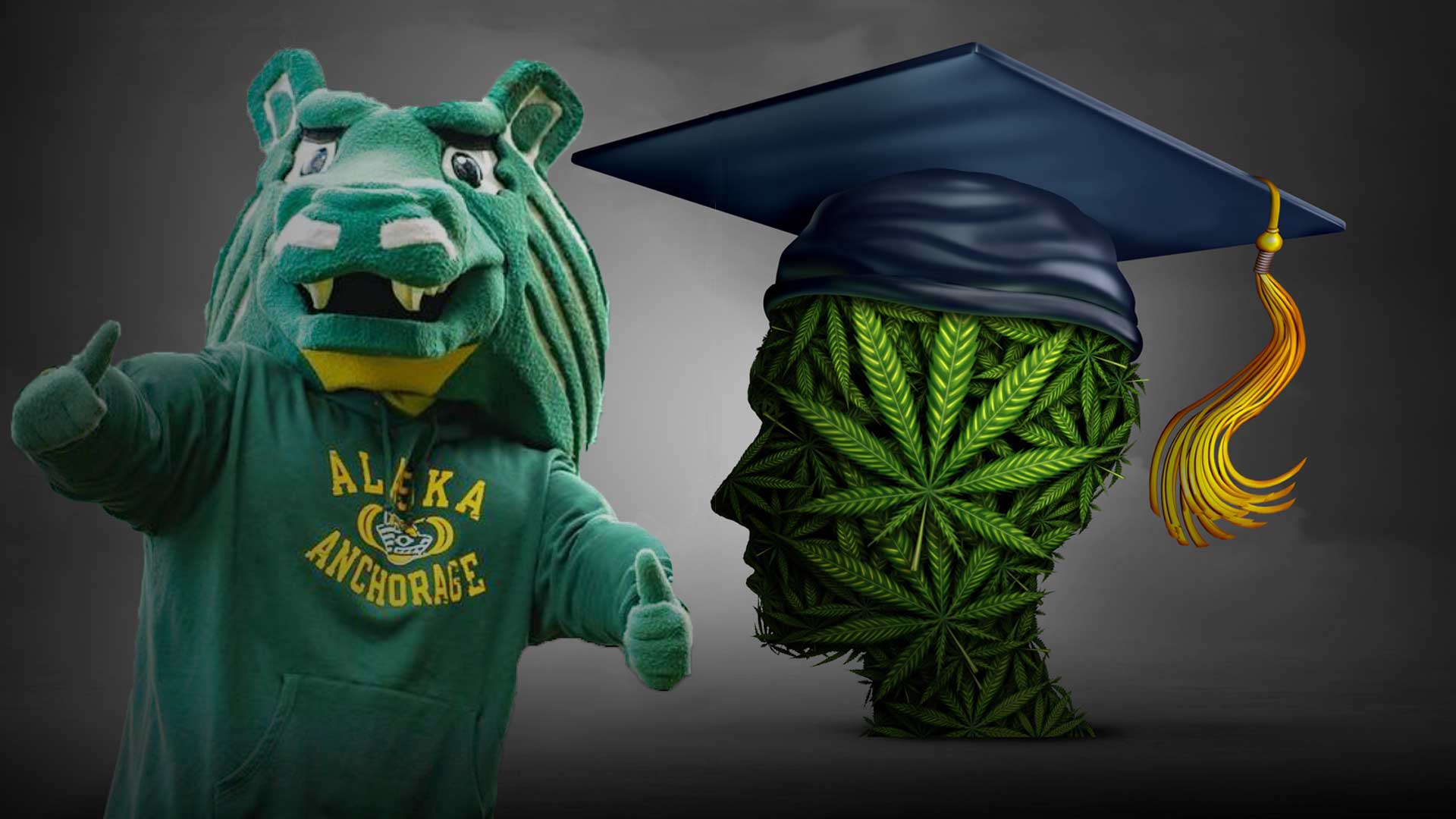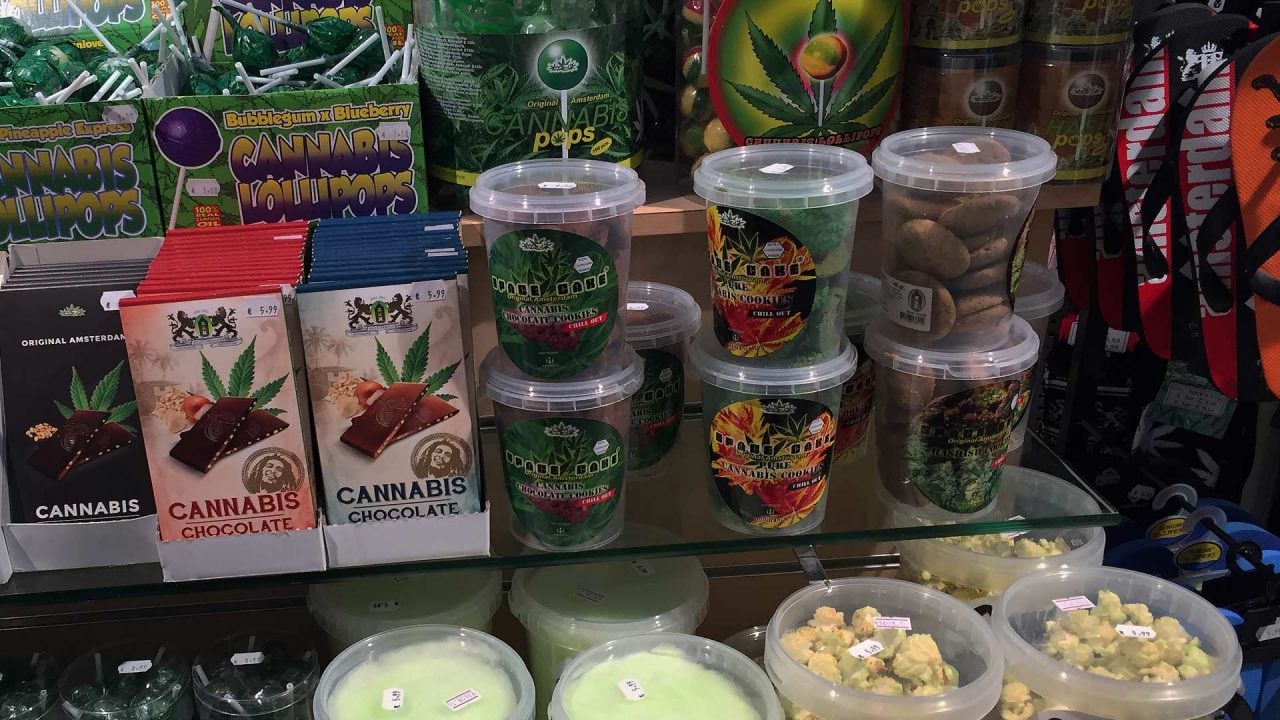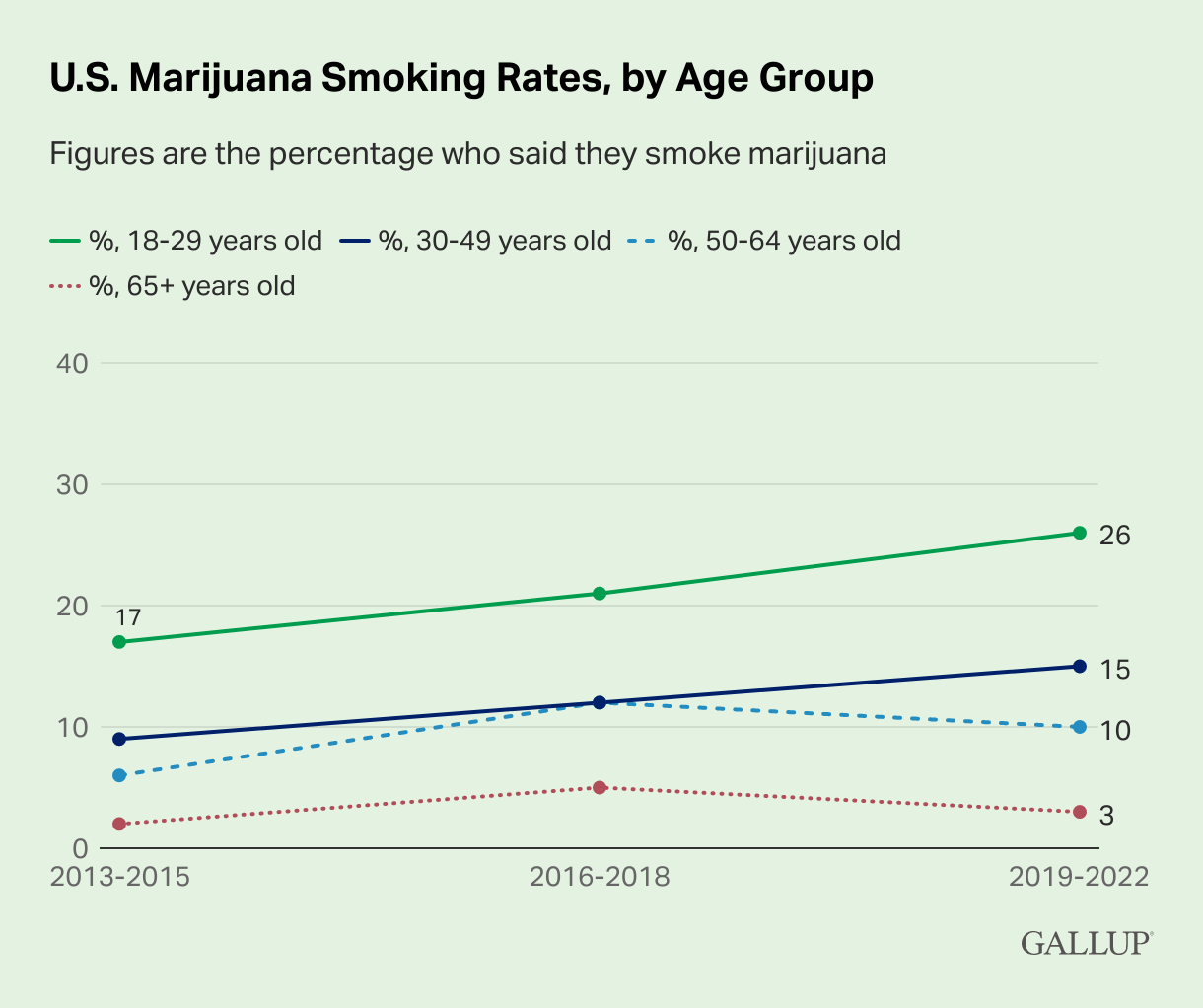

From Feb. 14 to March 2, a Mat-Su based recreational marijuana retailer, Baily Stuart, will be partnering with the state-funded University of Alaska, Anchorage to provide Anchorage students with a hands-on, fully accredited course that includes teaching the basics of how to create THC laced edibles.
According to the UAA student newspaper, The Northern Light, the new “Cannabasics” class covers cannabis lingo, various uses for marijuana plants, and techniques for decarboxylation and infusion – the process that activates the psychoactive compound – THC – which causes one to feel high when it is digested or smoked. THC is most commonly activated with a lighter, vape pen, or when cooking up edibles such as brownies, cookies and gummies.
Stuart, who co-owns the recreation Green Jar pot shops in Palmer and Wasilla, has already taught one class to 18 students this past September. UAA is pushing her second class through its website and flyers around campus in hopes of attracting somewhere between 25 and 50 students, age 21 or older, the Northern Light reported.
Federal law, however, poses a few challenges on how the class is taught.
“Currently, marijuana is illegal on the federal level and classified as a Schedule 1 drug,” the Northern Light noted. “Being that the university is federally funded, even academic research of cannabis must align with federal policies.”
Stuart plans to use hemp or CBD oil in her teaching labs, neither of which can make a person high. Still, students will learn all the same steps required to make products that can, in fact, get them high.
“We utilize hemp because hemp is federally legal, and it can be infused in the exact same manner as a flower that contains tetrahydrocannabinol or THC,” Stuart told the Northern Light.
Stuart also stands to benefit from teaching the class. She opened the first recreational dispensary in the Mat-Su in 2017, and has plans for further expansion.
“One of the things I like to do is go into some of the retirement homes and speak on cannabis because especially with those later generations, they harbor a lot of stigma,” she told the Northern Light.
ALASKA WATCHMAN DIRECT TO YOUR INBOX
Stuart also also wants to generate interest in “a new workforce that’s formally educated so that our industry can actually thrive,” she said.
It appears her plan is already reaping benefits from the initial class she taught this past fall.
“A few of my students came into my shop,” she said. “I teach strongly that you need to be able to smell cannabis. It speaks to the body through terpenes.”
Stuart is in the final stages of opening a new pot shop in Anchorage, and looks forward to teaching more students.
“It was probably the most rewarding thing I’ve done in my life,” she said.
While Stuart and other cannabis advocates are intent on expanding the use of marijuana across the state, Alaska already has the highest rate of dispensaries, per capita, of any state in America. According to Politico, Alaska has more than 20 marijuana dispensaries per 100,000 residents.
The state initially legalized recreational cannabis in 2014. By 2016 businesses were permitted to possess, grow, process, and transport up to six marijuana plants (three mature) to anyone 21 and older. In 2019, Alaska became the first state to permit on-site cannabis use in freestanding retail marijuana shops.

The rapid growth of the market, however, is not without controversy.
While supporters of legal marijuana claim it brings health benefits and increases tax revenue, critics of widespread marijuana consumption say it impairs short-term memory, increases engagement in risky behaviors and impairs driving.
Others warn that heavy and long-term cannabis use in adolescents carries substantial risks, including altered brain development, adverse psychological outcomes and mental illness. A recent report in Tablet notes that modern-day marijuana is unrecognizable to that of the 1960s. The now edible, vapeable, and drinkable cannabis-based products are far more potent than the weed of decades past.
“Addiction medicine doctors and relatives of addicts say it has become a hardcore drug, like cocaine or methamphetamines,” Tablet reports. “Chronic use leads to the same outcomes commonly associated with those harder substances: overdose, psychosis, suicidality. And yet it’s been marketed as a kind of elixir and sold like candy for grown-ups.”
Since widespread legalization of recreational marijuana is a relatively recent phenomenon, there is a shortage of long-term studies about the effects of increased consumption on society.








11 Comments
Contemporary home economic class
I was going to say, “Cool.” But, I see he has partnered with UAA, a globalist-tool. I wonder what the agenda is. Is he going to make up lists of students and then UAA is going to hand the lists over to the government?
I never could understand being it’s illegal on the Federal side how states can have it? Look what our youth have become. We should be proud of ourselves for doing this to them. Hetes another case of GREED! That’s one of the seven deadly sins!
It’s disturbing to read about people who are unashamed to profit off the entrapment, addiction, and destruction of their fellow man. It may seem like fun and games or relaxation at first, but when you watch a loved one succumb to addiction, turn his life upside down for the drug, cut ties with family out of shame, and allow pot to be the axis around which his life turns, you end up with a different view of things. It ain’t a “stigma,” and I’m not in a nursing home.
What is disturbing is that people choose to keep their head in the sand about other people’s behavior; blaming a substance that has helped a ton of people that didn’t abuse it rather than placing the blame on the individuals that do abuse it. Any number of substances or addictive behaviors would be in place of pot if it were completely inaccessible: legal drugs (such as Oxytocin), alcohol, gambling, porn… for that matter, shopping, TV and sugar, can and are the axis around which life turns for many people which cause them to withdraw from a better life than they could have. It’s no different than blaming gun crime on the accessibility of guns to law abiding citizens.
Theresa’s main point was the disturbing nature of someone out to make a buck and pushing a product that is problematic, highly contentious, and — at this juncture — not fully legal. This is compounded by the problematic nature of her partnering with a government-funded institution and their frank admission of efforts to get around existing laws. Has nothing to do with what else is legal or illegal, what else ruins lives, whether gun owners are at fault for mass shootings, or whether individuals carry 100% of the responsibility for their addictions. Come on now.
Excellent. Education in proper techniques and industry standards will only produce better, safer products. Being that cannabis can be/is such a superior alternative to many pharmaceutical drugs and recreational alcohol, efforts should be made to remove as much of the “street” element as possible. Education of the general public and grassroots movement are the key to overpowering the pharmaceutical industry’s power over the Federal drug schedule which has cannabis classified as “no medical use” and more harmful than methamphetamine or oxytocin (this classification prevents it from even being legitimately studied).
I agree J P. I have known some real stoners that were abusing marijuana, but I know more people that use it for medicinal purposes. I would rather see people grow their own and use that instead of buying big pharma toxins.
Now do mushrooms
Don’t you have to ask why you can legally grow, dry and smoke almost any other plant but not this one? Why is alcohol legal when it is actually a depressant? Talk to their families about addiction, overdose…violence associated with its use. Have there been studies showing positive mental health and physiologic benefits to chronic conditions with alcohol? There are many for marijuana; epilepsy, PTSD, anxiety…where other medications have failed to help or have more serious side effects causing worse issues.
I am not advocating for making alcohol illegal here, merely using it as a reference for comparison. This article seems to be rather sparingly informed of the whole body of information regarding marijuana. I am not saying it is the best choice, but I do believe it is not the government’s business to stop someone from making the choice and those who make that choice will deal with the consequences of that choice, and yes their family and friends and society will to some degree as well. Do you not do things that have effects on other people that they would like to stop you from doing too?
Since AK has become a pot legalized state I think this is a great idea. Edibles are safer than smoking for the lungs. And pot is better for you than ALcohol.